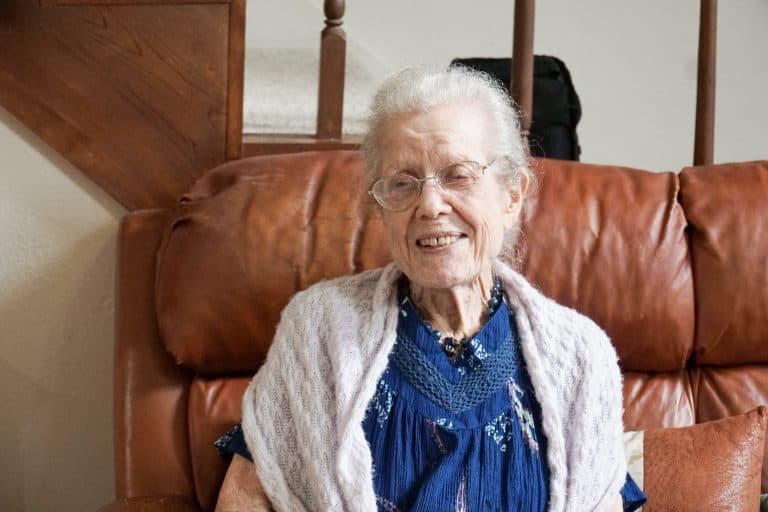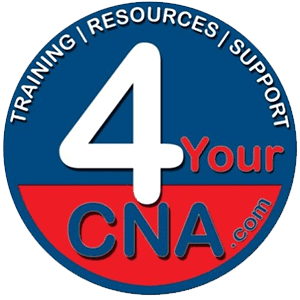Workplace Wednesday
Urgent Care Centers and Medical Offices

Independent. Ability to make your own choices. Want to be active and social. No more cooking or cleaning. No laundry or yard work. Sound like the ideal vacation? Nope, it’s an Assisted Living Facility (ALF).
An ALF is the ideal place for elderly residents that don’t want all the work that goes into maintaining a house and just want to relax and enjoy their retirement years. Sure, they could hire people to come in and shop, cook, vacuum, mop, dust, clean the gutters, mow the yard, drive them around and help out where they need help. But, that is a lot of people and a lot of tasks…and that can be expensive. So, the next step is to move into an apartment building with other seniors where all of those tasks are covered for one monthly fee. Plus, you can stay there even if you start to need a little more help as you get older, because they have staff that can help with bathing, dressing, grooming and feeding, too! And, best of all, this is the ideal environment for someone with your specific talents!
Overview
As an ALF CNA, you will be caring for elderly patients that just need some personal help – not medical help. This is a non-clinical environment and the focus is on maintaining the patient’s quality of life (not curing a medical condition). The ability to socialize with these residents is your key to success, and understand that just because the patient needs a bit of help, it doesn’t mean they are sick.
How much help each person will need is going to vary widely from person to person. You might have to bathe a bed-bound patient or just be available to a patient who showers on his own in case of emergency. You might have to help put toothpaste on a toothbrush because the resident can’t squeeze the toothpaste tube or you might have to completely clean the resident’s dentures each evening. All care is individualized, based on what that particular resident needs from you at that time. Independence is encouraged, but we are there to fill in the gaps when needed. But, this care will primarily revolve around basic ADLs (Activities of Daily Living) like toileting, bathing, dressing, grooming, feeding and socialization – NOT medical care.
There are a few ALFs that employ nurses and may have a limited nursing services license that allows their nursing employees to treat select medical conditions, but that is not the primary purpose of an ALF. An Assisted Living Facility is designed to help residents age in place gracefully – all in a safe environment that can meet their needs, providing more assistance as the resident ages and needs more help with daily activities. It is important to recognize the difference between how MUCH assistance a person needs and the KIND of assistance a person needs. A person that needs total assistance bathing, dressing and grooming is still not receiving MEDICAL help, just a lot of personal care. And that is exactly the type of care offered at an ALF.
"The Glory of the Elderly is their insight to life."
Lailah Gifty Akita
Working in an Assisted Living Facility (ALF) brings very specific challenges, and great rewards. Read below for some specifics.

1. Pace
Healthcare in an assisted living facility (ALF) is moderately paced. There will be periods of intense activity as residents get ready for the day, or prepare to retire in the evening, but periods between of slower paced care. Routine is key here and every day looks very much like the last. Predictability is important to many residents, who may not have strong coping skills to adapt to changes, so your ability to keep a schedule is important in this setting. Emergencies do happen, and changes will occur, but they are generally rare.
You tend to thrive in a non-clinical home environment, and it shows in everything you do. From helping residents who are too weak to get out of bed today, to keeping a resident’s environment tidy with a smile on your face, to helping visitors find their way around, to lending a helping hand to a struggling resident, everyone can count on you!

2. Type of Patient
ALF residents are generally elderly persons who are not comfortable living alone any longer and prefer the companionship and assistance that comes from a congregate setting. But this doesn’t mean that they are incompetent or inept or need to be told what to do. These residents expect to be treated with dignity and respect and their preferences honored. Caregivers in this setting need to take their cues from the patient and make sure they learn what the patient prefers and how they like things done.
Some residents in this setting will be of sound mind and able to recall people and events with no trouble. Others may have memory issues and need prompting. Some severely impaired residents may be located in a locked unit for safety, to prevent wandering into unsafe situations. Each of these will require a different communication strategy and a different level of care. You have to be very versatile and be able to adapt to the needs of each different type of resident, and provide an individual level of care. You know that, when it comes to people, one size really does NOT fit all. Luckily, you are able to change your approach as needed.

3. Number of Patients
Because there isn’t as much to do with each resident, CNAs in this setting usually have a moderate to high patient assignment.
The number of patients you have will depend on what shift you are working, what department you are in, and what kind of help your patients need. Day shift (where all the action happens) will require more work with each patient, so fewer patients are assigned to each CNA. Night shift, when most patients are sleeping, means less staff (night shift CNAs can care for more patients, which means there are fewer CNAs on this shift). But it can vary widely from one department to another. A day shift CNA working on a minimal assistance floor where most patients are able to care for themselves might be able to handle 20 patients easily but one floor down, a day shift CNA working in a lock-down unit with patients who have advanced dementia could only safely care for 5 patients. And a CNA on an overnight shift may have an entire wing to care for.
Overall, though, ALF CNAs generally have more patients to work with than a CNA in a nursing home or hospital because residents of the ALF generally require a lot less medical care and attention. You need a moderate level of energy and drive to keep up with so many patients, but the care needed by each one remains relatively routine and stable.

4. Oversight and Supervision
ALF CNAs are comfortable working independently, with little oversight, but having someone to call for help is a comfort. Feeling like part of a team can be important to some, but not as important to others, so the ability to develop a close-knit working relationship will depend on the CNAs in your facility. CNAs in this setting usually don’t work very closely with nurses or other healthcare professionals but may develop close bonds with their residents as they get to know them. This can make the CNA a valuable source of information regarding changes in the resident over time.

5. Length of Patient Interaction
This is where the patient lives, presumably throughout the rest of their life. This is their home, and as such, the bonds between resident and caregiver can become quite strong. It is not uncommon for staff to care for the same residents for years, or even decades. The Assisted Living Facility CNA is generally friendly and comfortable talking with their residents, and encourages conversations with the residents they care for. Since much of the care provided is intensely personal, it can help the resident become more comfortable with personal care if they know the caregiver better.

6. Schedules and Shifts
ALFs usually run on 8 hour shifts, but variations can sometimes be offered. CNAs usually have a set schedule, where they work the same days/shifts every week, and cover other shifts as needed for co-workers when vacations, sick days or personal issues arise.
With only three shifts to choose from (day shift, afternoon shift or night shift), there isn’t much flexibility in this schedule. Nights, weekends and holidays may be required (but usually on a rotating basis).
Schedules will vary depending on facility and department. Some will offer a set schedule that rarely varies, working the same days every week. Some will require more flexibility as the days you are scheduled will be different every week.

7. Pay and Benefits
ALFs generally offer some of the lowest pay rates because of the non-medical nature of the job. In fact, certification is not required for many ALFs (although if you are certified, pay rates will be better). This is a non-clinical position (remember, we are simply helping with ADLs and socialization) so the pay scale will reflect that. This is a great position for someone who likes to help others, but isn’t thrilled about clinical settings or medical procedures. However, even though the pay is lower, the slower pace of an ALF allows new CNAs to practice skills and refine their confidence level before moving to a more demanding position.
Shift differentials are common, offering a higher hourly wage for working nights, weekends or holidays. Extra shifts are usually available when extra money is needed. This setting usually does not offer benefits such as paid time off, tuition reimbursement or medical insurance, but that varies by employer.

8. Learning New Skills
ALF CNAs won’t have much opportunity to learn new skills, as this is not a medical setting. Because care will revolve around personal needs like bathing, dressing, grooming, eating, etc. there is little to learn in this setting. Occasionally the CNA may come across something new, but that is rare in a non-medical ALF.

9. Opportunity for Advancement
Assisted living facilities offer very little opportunities for advancement but some additional education can help you move into an administrative role.
Summary
ALF CNAs work pretty independently, but as part of a larger team of facility caregivers. There may (or may not) be a nurse on staff, but CNAs will always report to a supervisor who will coordinate care and solve problems as they come up. Supervision is on-site but not always in-sight, so ALF CNAs need to be able to follow directions, manage their time effectively and be comfortable working independently.
A big part of working in an ALF is socialization with residents. You need to be comfortable listening to people talk about their lives, interests, jobs, families and experiences. Even if you aren’t comfortable sharing, you need to be comfortable listening and showing interest.
It pays to pick the right workplace…and your personality will have a huge impact on your overall success. Often, we have unrealistic expectations and the reality doesn’t live up to what we THOUGHT the work would be like. Knowing what to expect and making sure you have the skill set to perform well will go a long way to ensuring your success, no matter WHERE you decide to work in healthcare!
You might also be interested in:
FAQ Friday: What if I have a Criminal Background?
FAQ Friday What if I have a Criminal Background? Background Screening I am often asked,…
Test Tip Tuesday: Why is there a washcloth in the sink?
Test Tip Tuesday Washcloth Tests…no one likes them. You get anxiety, you lose sleep, you…
FAQ Friday: When Do I Put On Gloves?
FAQ Friday When Do I Put On Gloves? A lot of students think that you…

